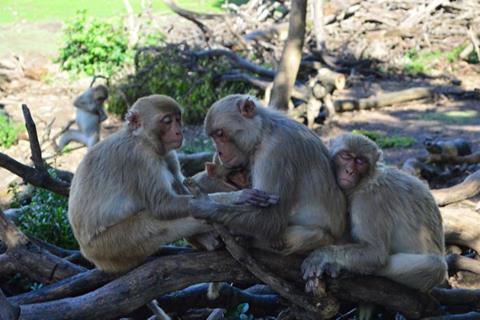Becoming less sociable protects older monkeys from getting ill, new research shows.
Many animals, including humans, are known to experience “social ageing” – reductions in their number of social connections as they get older. But why this happens remains a mystery.

READ MORE: Good friendships may make for a healthier gut microbiome
READ MORE: Assays for rapid and visual detection of monkey B virus
The new study, led by the universities of Exeter and Edinburgh, used long-term data on rhesus macaques on Cayo Santiago – known as Monkey Island.
They found that older macaques are likely to suffer less from infectious disease, mostly because of their smaller social networks.
The study is published as part of a special issue of Philosophical Transactions of the Royal Society B, guest edited by Professor Lauren Brent from the University of Exeter.
Sociality comes with costs
“Social ties bring huge benefits to a vast range of species – but sociality also comes with costs, including infectious disease risk,” said Dr Erin Siracusa, from Exeter’s Centre for Research in Animal Behaviour.
“This cost-benefit ratio can change across individuals’ lifespans, which may drive changes in social behaviour.
“Older individuals may be more susceptible to diseases – but once we accounted for that in our data, we found that older macaques suffered lower infection costs than their younger counterparts.
“Our findings suggest a powerful reason why many animals, including humans, might reduce their social connections as they age.”
The benefits macaques gained from social ageing depended on the diseases in question.
Unsurprisingly, the benefit was strongest when diseases were highly infectious and were more severe for older macaques.
Dr Matthew Silk, from the University of Edinburgh, said: “Our results point to illness potentially helping to explain why ‘social ageing’ evolves – something we are keen to test in future research.”







No comments yet